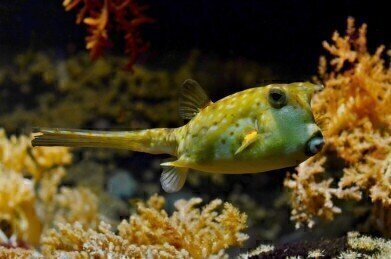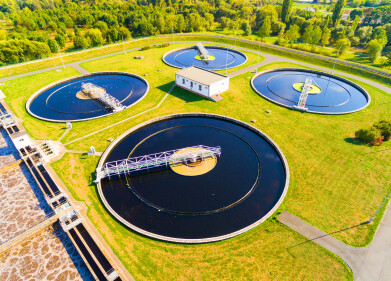Water/Wastewater
Devastating Coral Bleaching Spreads to the Maldives
Jun 23 2016
New photos taken by the XL Catlin Seaview Survey and published exclusively on the Guardian have shown that the Maldives is the latest nation to have its offshore coral reefs affected by coral bleaching. The current bleaching crisis, which is the longest of its kind in history, began back in the summer of 2014 and is projected to last throughout 2016.
Earlier this year, an aerial survey had revealed the worst bleaching ever seen on the Great Barrier Reef off the coast of Australia. Now, the researchers are moving further west and are discovering that the bleaching epidemic continues to affect other regions of the Indian Ocean, as well.
Why does coral bleaching occur?
Normally, animal polyps such as sea anemones feed upon tiny plants growing on the coral, known as zooxanthellae. As the plants thrive from photosynthesis and interact with the animals, chemical reactions cause the coral to glow spectacular colours.
When the water surrounding coral becomes too hot for over a week, the polyps reject the plant and move on in search of cooler climes. In their absence, the zooxanthellae no longer glows and instead takes on a bleached appearance. If the hotter temperatures persist for an extended period of time, the coral will die.
After its death, algae will grow on the coral and thereby prevent the formation of new colonies. This can be counteracted if enough fish feed on the algae and clear the way for new corals to return. For a more in-depth and technical description of the biology of corals, check out the article Electron microscopy reveals secrets of nanocrystal-assembly in coral skeletons.
Climate change to blame?
The elevated temperatures in the sea which cause the polyps to move on and thereby cause the bleaching (and sometimes death) of the coral could well be brought about by climate change. Indeed, a new study has found that the current bleaching crisis was made 175 times more likely as a result of manmade climate change.
It also found that within 20 years’ time, this type of bleaching could become not a crisis at all – but rather than the sad normality of an ocean ravaged by our negligence. Since corals can act as a natural archive of environmental and climate change, logging the effect of heavy metals over time, it’s somewhat tragically ironic that they are being killed off by that which they are archiving.
In any case, the death of coral reefs worldwide would have grave implications for underwater ecosystems. At present, they provide a habitat and food for roughly 25% of all marine species.
No end in sight
Surveying of the Great Barrier Reef revealed that 93% of the 3,000-odd reefs had been subject to bleaching, and the latest data shows that the epidemic doesn’t appear to be ending any time soon.
“The bleaching we just witnessed in the Maldives was truly haunting,” confessed Richard Vevers, head of the Ocean Agency. “It’s rare to see reefs bleach quite so spectacularly. These were healthy reefs in crystal clear water at the height of an intense bleaching event. The flesh of the corals had turned clear and we were seeing the skeletons of the animals glowing white for as far as the eye could see – it was a beautiful, yet deeply disturbing sight.”
“We’ve been following this third global bleaching event since the start nearly two years ago and just when you think you’ve seen the saddest sight you’ll ever see, you see something even worse,” he went on.
Digital Edition
IET 34.2 March 2024
April 2024
Gas Detection - Biogas batch fermentation system for laboratory use with automatic gas analysis in real time Water/Wastewater - Upcycling sensors for sustainable nature management - Prist...
View all digital editions
Events
Apr 30 2024 Melbourne, Australia
Apr 30 2024 Birmingham, UK
May 03 2024 Seoul, South Korea
May 05 2024 Seville, Spain
May 06 2024 Minneapolis, MN, USA


















